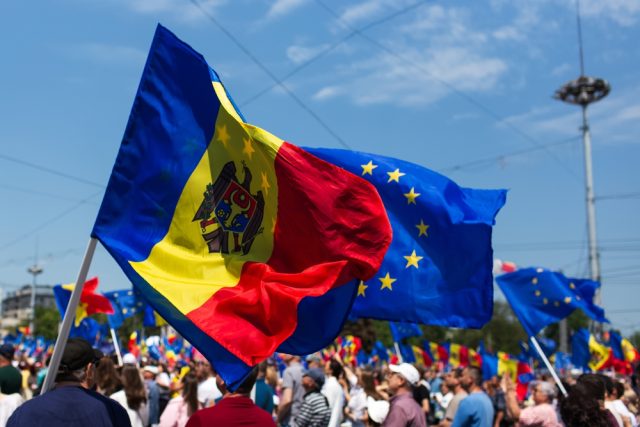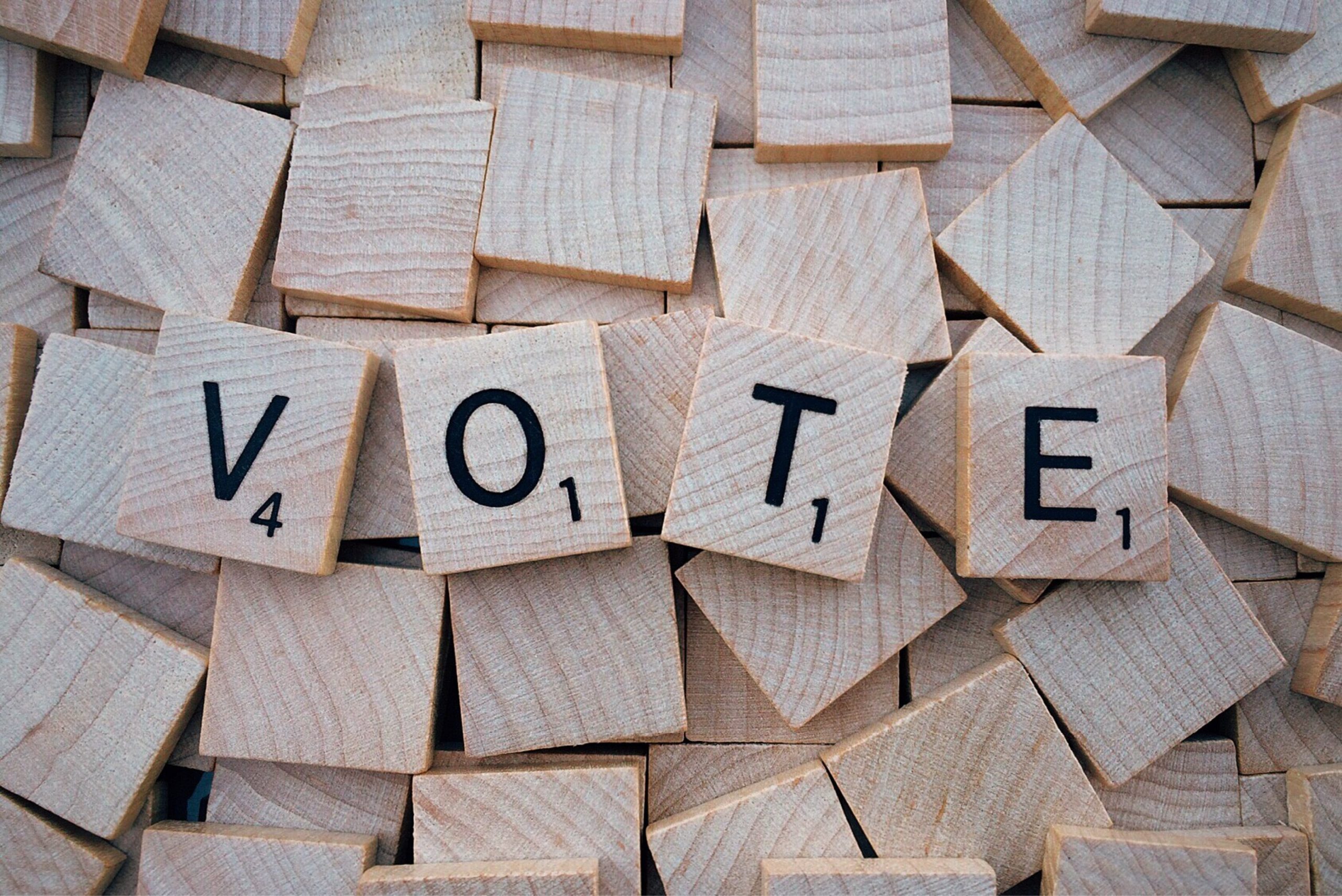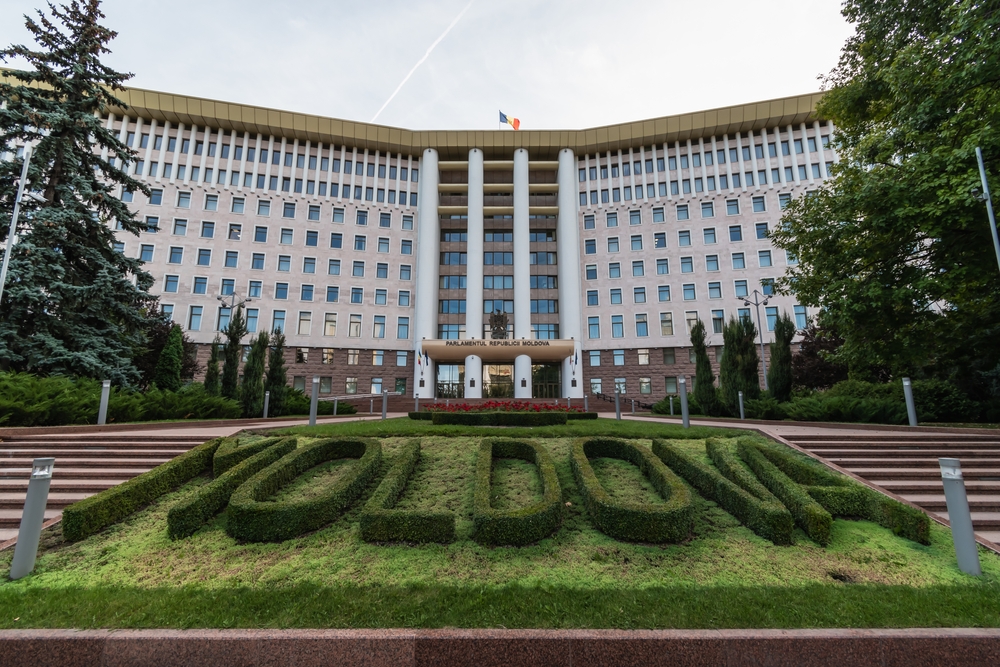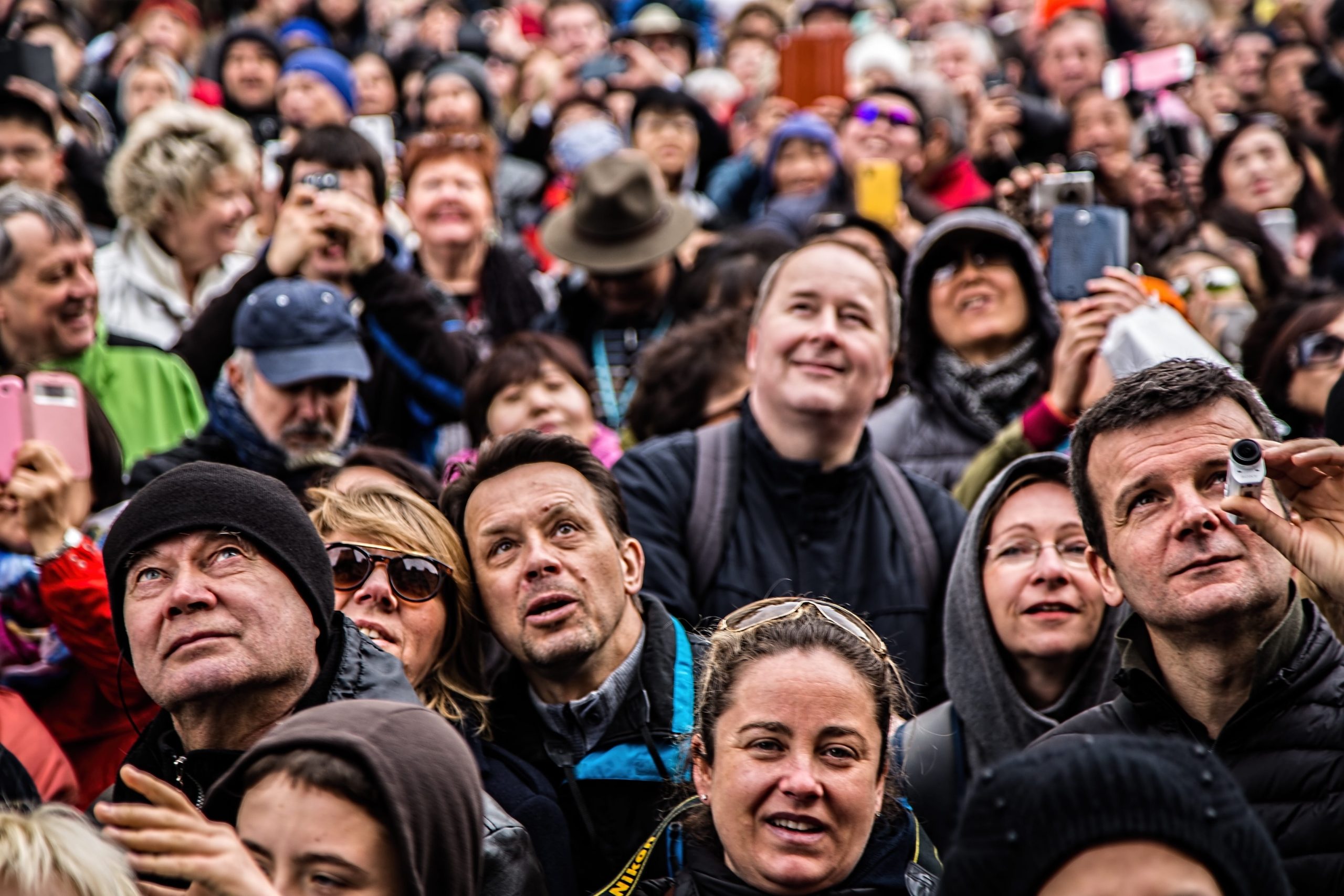
At the end of this week, the citizens of the Republic of Moldova are called to the polls to elect their future Parliament, whose future composition will decide whether the country will follow the pro-European path desired by President Maia Sandu or return to the past, under the umbrella of the Russian Federation. We can say without hesitation that the elections in the Republic of Moldova represent a crossroads: Europe or Russian influence. The referendum on joining the European Union and the presidential elections showed that the majority of Moldovan citizens want a better life alongside European values. However, Russian propaganda has divided the country in two, which is why the outcome of the elections across the Prut River is difficult to predict. What is certain is that the outcome of the 28th of September elections will not only determine Moldova’s future, but will also directly affect its relations with Romania and Ukraine. Most political analysts argue that these elections are crucial for Moldova’s destiny because a victory for the pro-Russian parties would mean a Parliament hostile to the European Union and an unstable government, which would lead to a delay, for at least a generation, of the union of the Republic of Moldova with Romania within the European Union. As was the case last year during the elections in Romania, it is well known that Moldova has long been under intense hybrid attack from the Russian Federation and under constant pressure from pro-Russian politicians within the country. That is why a victory for the pro-Russians would effectively mean leadership under the direct influence of the Kremlin. On the other hand, a pro-European victory represents a historic opportunity to raise the standard of living for ordinary citizens by accessing pre-accession funds and, why not, a real chance for the Republic of Moldova to become a full member of the European Union in the next 4-5 years.
Moldova at a crossroads: between geopolitical pressures and the choice of a European future
As mentioned above, the parliamentary elections on the 28th of September are described by analysts as the most important in the post-USSR history of the Republic of Moldova. The general atmosphere among citizens regarding this election is not one of a normal electoral competition, but of a confrontation between two ideologies. The ideology of the Russian Federation, with its tradition of influencing countries in the former Soviet space, sees Chisinau as a strategic piece in a puzzle that must not be lost. Meanwhile, representatives of the European Union want to keep Moldova on the path it started a few years ago, namely a path of integration into the European family and modernization. It is precisely for this reason that we can say that the vote at the end of September is not just about parties, leaders, and their electoral promises, but about the geopolitical destiny of a small country that has been caught between a rock and a hard place for more than three decades, between two great powers: the West, with its promises of a better life, and the East, with the communist ideology of the “Great Bear” from the East.
This huge stake in the future parliamentary majority is seen by political leaders in Chișinău as an “extremely dangerous moment,” in which Moldova could become a testing ground for the major European powers. Even among ordinary citizens, discussions about Moldova’s future are no longer just simple reflections on everyday life, but are intertwined with questions about peace, security, and national identity.

After the collapse of the Soviet Union, the Republic of Moldova proclaimed its independence in 1991, but breaking away from Moscow did not mean a complete break, as other countries in the former Soviet bloc did. The early 1990s were marked by political and economic instability, and the political class kept putting off choosing a clear foreign policy direction. Over the last 30 years, Moldova has been torn between looking east and dreaming of a better life with the EU, a balance that has shaped the country’s recent history. Economic and cultural ties, and especially energy dependence on the Russian Federation, remained strong in the years following the declaration of independence. The best example of the difficulties of breaking away from Russian influence was the conflict in Transnistria, which showed how fragile the construction of a new state is. Throughout this time, Romania, Moldova’s “big brother,” has become a strategic partner, not only through geographical proximity, but also through historical and cultural ties and, more recently, through economic aid to Moldova.
Relations with Romania and Ukraine after 1991
Just a few hours after the proclamation, Romania was the first state to recognize the independence of the Republic of Moldova. In the years that followed, bilateral relations were like a roller coaster. Sometimes, the leaders in Bucharest were perceived as Chisinau’s advocates in Brussels, while at other times, due to internal political differences, relations cooled. Nevertheless, Romania remained the main supporter of Moldova’s European integration, offering scholarships for students, economic aid, and constant diplomatic support to Moldovan citizens. Ukraine, Moldova’s eastern neighbor, is also strategically important for Chișinău. After declaring independence in 1991, the two countries signed cooperation treaties and enjoyed periods of good collaboration. However, there have also been tensions over the border on the Dniester River and the rights of minority communities. The Russian Federation’s annexation of Crimea in 2014 and the invasion that began in 2022 radically changed the situation on the EU’s eastern border. Moldova’s security has become extremely fragile, with the country caught between the Ukrainian front and constant pressure from Russia. With few natural resources, the Republic of Moldova has been fighting for survival for over three decades, and the transition to the European dream is becoming increasingly difficult. With an estimated population of approximately 2.5 million in 2025, Moldova remains one of the poorest countries on the old continent. Due to massive migration, the country’s population is steadily declining. Hundreds of thousands of Moldovans have chosen economic exile, ending up working in EU countries such as Italy, France, and Germany, and the money they send home is an important pillar of the economy.
The standard of living in Moldova is much lower than in European Union member states. The average salary in Moldova is just over €800, much lower than in Romania or Poland, countries that underwent similar transformations after 1990. Similarly, the average pension of a Moldovan citizen, even though it has increased in recent years, remains insufficient to cope with the rising costs of energy and food. However, Moldova’s economy has also shown signs of progress. In recent years, pro-European governments have tried to attract investment, reform the justice system, and create a more predictable climate in order to start accession negotiations. Although the process is slow and complicated, closer ties with the European Union are seen by more and more citizens as the only path to modernization and stability.
Decisive elections in a fragile democracy
In this context, the elections at the end of this week are of major significance. The stakes in the parliamentary elections are not only who will lead the government, but whether Moldova will continue on the path to European integration or be drawn back into the Kremlin’s sphere of influence.
For some citizens of the republic, the European Union means the freedom to work anywhere and the hope of a better life. For others, ties with the Russian Federation are still synonymous with stability, culture, and identity. According to official figures, the number of people eligible to vote is approximately 2.8 million, but turnout is always unpredictable, especially among those who live and work abroad. The votes of Moldovans abroad have already tipped the balance in previous elections, when Maia Sandu was elected president of the Republic of Moldova, confirming once again how important the community abroad is.
The political landscape in the Republic of Moldova is far from simple, with the Moldovan political scene being extremely fragmented. Over the years, political parties have appeared and disappeared, formed ephemeral alliances, and caused government crises year after year. The 28th of September elections highlight this fragmentation once again. The electoral competition includes both pro-European parties and forces close to Moscow, as well as politicians who try to present themselves as the “voice of the people” with an anti-establishment discourse. This fragmentation cannot be considered a mere coincidence, as the Republic of Moldova is a country where identities overlap and contradict each other: Romanian and Russian languages, Western culture and Soviet heritage, pro-European aspirations and nostalgia for the East. Politicians have exploited these divisions, each trying to win over voters loyal to the ideas they promote.

A well-known political leader who has made a name for himself with his direct and controversial style claims that Moldova risks becoming a “playground” for the major powers. In his view, ordinary people remain victims of a battle that is being waged not for their welfare, but for geopolitical control. He criticized the current government for having lost touch with the daily reality of citizens, insisting that European promises remain only on paper. Another politician, who previously held important positions in the state, reproached the current leadership for its lack of professionalism and inability to maintain a balanced dialogue with the Kremlin. In his opinion, closing communication channels with the Russian Federation is a mistake, because many Moldovans continue to depend on the eastern market. On the opposite side, pro-European leaders believe that the only viable path for Moldova’s future is closer ties with Brussels. Pro-European Moldovans see the financial and political support of the European Union as an opportunity to modernize state institutions, raise living standards, and anchor themselves in a stable democratic space.
An important player on the Moldovan political scene is the current mayor of Chișinău. He is trying to extend his political influence beyond the capital by building his image on the promise of administrative efficiency and a balanced discourse, avoiding radical positions. However, his opponents and critics accuse him of remaining ambiguous on fundamental issues such as European integration or relations with Russia. At the same time, the former prime minister, now a party leader, is trying to regain ground with a message of stability and pragmatism. He promises that he can better manage resources and foreign relations, presenting himself as a politician with international experience.
In addition to these central figures, the Moldovan political scene has been invaded by small parties and regional leaders, who often play the role of arbitrators in post-election negotiations. This fragmentation of the political class will make it difficult to obtain a clear majority, and the scenario of a new complicated coalition is almost inevitable.
Moscow, Brussels, and Washington
External influence remains a constant factor in the Moldovan political class. Moscow, through both official and unofficial channels, constantly sends warning messages: getting too close to NATO or the EU could have “serious consequences.” Leaders in Brussels and Washington, on the other hand, offer financial support packages, but these are conditional on real reforms in the justice system and, in particular, in the fight against corruption. Political leaders in Chișinău are therefore caught between two pressures: on the one hand, the promise of a European future; on the other, the fear of economic and energy reprisals from the Russian Federation.
On the northern border, people view the election campaign with scepticism. “Politicians only come before the elections, then they forget about us,” say most of the locals. Most of them make a living from agriculture, but the low prices they receive for their products and the lack of infrastructure discourage them. That is why many young people have chosen to go abroad to work in Italy or Germany, while the elderly who have remained are waiting for their small pensions, which are barely enough to pay for utilities, food, and necessary medicines. For these people, the European dream is not an abstraction, but a place where their children live better and send money home to ease their old age. But at the same time, those who live on the northern border recognize that they still depend on Russian products and markets. This ambivalence is directly reflected in their voting decisions.

In the capital, Chișinău, perceptions are very different. Some young people believe that Moldova must do everything possible to integrate into the European Union. “We have no future here, we must go west,” say most young people. Older people, on the other hand, continue to evoke Soviet stability and look back nostalgically to Russia. The cost of living in Chișinău is rising: rents are increasing, and energy and food prices are getting higher. Many citizens blame endemic corruption and poor administration, which is why, for the middle class, closer ties with the EU mean the hope of a functioning justice system and clear rules.
Why does the diaspora play a crucial role in Moldova’s elections? Well, statistics show a harsh reality: over one million Moldovan citizens live and work abroad. The money they send home accounts for almost 15% of Moldova’s GDP. At the same time, the decline in population is affecting the labor market and the social system. The average pension is less than 3,000 MDL, and the average salary remains insufficient by European standards. If we compare this with Romania, where the average net salary exceeds 5,000 RON, or with Germany and France, where the average net salary is over 2,000 EUR, this discrepancy means that emigration remains an inevitable solution for many Moldovan citizens.
Misinformation, corruption, and the fight for fair elections in Moldova
Currently, both within Moldova and among Moldovan communities working abroad, there is a real battle being waged on the information front. Following the model patented in the Romanian elections, the Moldovan elections are not only taking place in villages and towns, but also on the internet. Social networks have become the favorite ground for obscure campaigns, fake attacks, and attempts to manipulate public opinion. Experts have already documented numerous cases of “deep fakes” – fake videos featuring politicians – circulating widely on Telegram, TikTok, and Facebook. A series of recent investigations have shown how external interest groups are financing these disinformation campaigns in an attempt to influence public opinion. The authorities are trying to combat this phenomenon of disinformation, but the cybersecurity infrastructure is fragile.
Another topic dominating the electoral discourse at this time is corruption. From the “theft of the billion” in 2014, a case that shook the entire society, to recent scandals, people have been left with a deep distrust of the political class. Many believe that no matter who wins, corruption will not disappear, only the actors will change. The European Union has repeatedly made its financial support conditional on the implementation of real reforms in the justice system, but the implementation of these reforms is slow, and many judges and prosecutors are still suspected of serving political interests. Looking ahead, the Republic of Moldova has a choice between East and West. The elections on the 28th of September will not only be an exercise in democracy, but a real test of resilience for Moldovan society as a whole. Everyone is aware that the Republic of Moldova is caught between two worlds: Russia, which views Moldova as a former province that must not be lost, and the European Union, which sees it as a state aspiring to modernization.
For Romania, the direction Moldova will take is vital. A pro-European government in Chișinău would mean stability on the eastern border of the European Union. For Ukraine, a country ravaged by conflict with the Russian Federation, Moldova remains a strategic ally in the face of Russian aggression. As for Russia, the loss of Moldova from its sphere of influence would be another step in diminishing its control over the countries of the former Soviet space. Moldova, a country caught between nostalgia and hope, between the past and the future, remains fragile but not without resources. The choice that citizens will make at the polls at the end of this week will be decisive: either a decisive step towards the European Union or a return to a vicious circle of dependence on Moscow. In a troubled region, this small country has the chance to show that democracy, however fragile, can endure when people assert their right to decide. After the 28th of September, the future of the Republic of Moldova will depend on the courage of its citizens and the maturity of its political class.



 Subscribe
Subscribe